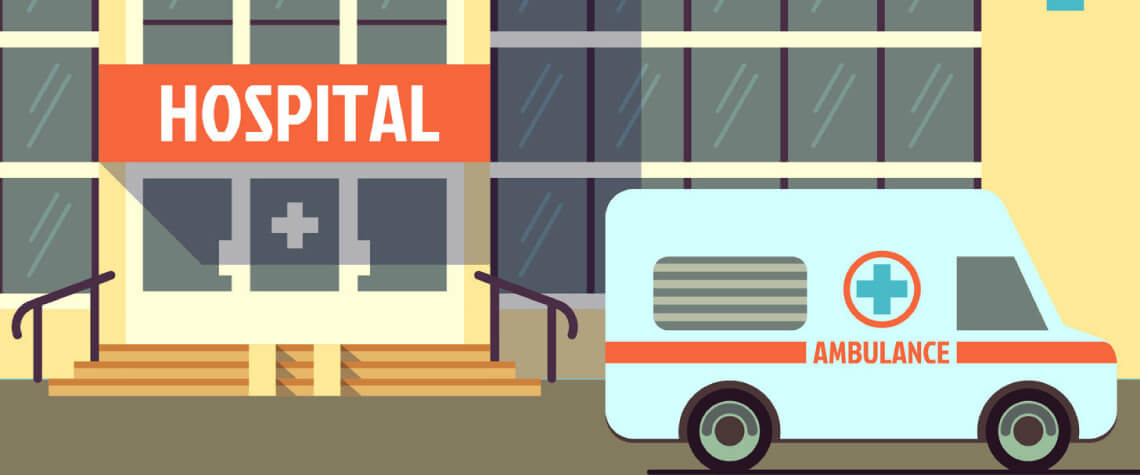Timely Medical Transportation Solutions: Obtaining You Where You Need to Be
Timely Medical Transportation Solutions: Obtaining You Where You Need to Be
Blog Article
Economical and Accessible Medical Transport Options for every single Scenario
In the world of medical care, the ability to access medical services is critical, yet the obstacle of budget friendly and available transportation can commonly prevent people from obtaining essential treatment. By discovering customized clinical transport solutions, community transport programs, ride-sharing and taxi solutions, non-emergency clinical transportation, as well as public transit and paratransit options, people can locate methods that cater to their particular requirements and guarantee they get the care they require.
Specialized Medical Transport Services
Specialized clinical transport services play a crucial function in making sure safe and effective transportation for people requiring specialized treatment during transportation. These solutions provide to clients with unique clinical needs, such as those requiring constant surveillance, specialized tools, or medical treatments throughout transport. By making use of specially equipped vehicles and skilled clinical personnel, specialized clinical transportation services make sure that patients get the essential care while being transferred in between healthcare centers, homes, or other places.
One trick element of customized medical transport services is the concentrate on person comfort and safety and security. Medical transport groups are educated to manage various medical conditions and emergencies that might arise during transit, providing a higher degree of treatment than typical transportation choices. Furthermore, these solutions commonly supply door-to-door assistance, reducing the anxiety and pain that people might experience throughout transfers.
Area Transport Programs
Having actually attended to the important role of customized medical transportation solutions in guaranteeing safe and reliable transport for people with unique medical demands, the emphasis now shifts to examining Community Transportation Programs - medical transportation. These programs play an important role in supplying budget friendly and available transport services for the basic populace, including senior citizens, people with disabilities, and low-income households who may face challenges in accessing typical transport alternatives
Community Transport Programs include a series of solutions such as fixed-route buses, paratransit solutions, volunteer chauffeur programs, and ridesharing efforts. These programs are often subsidized by regional governments, non-profit companies, or private companies to guarantee that individuals have reputable transportation alternatives to get to clinical appointments, supermarket, social activities, and other essential destinations.
Ride-Sharing and Taxi Providers

One of the essential advantages of ride-sharing and taxi services is their availability. These services operate 24/7, allowing people to take a trip to clinical appointments, drug stores, or healthcare facilities at any type of time of the day. Additionally, ride-sharing and taxi services accommodate people with wheelchair difficulties by using wheelchair-accessible index lorries upon demand.
Furthermore, ride-sharing and taxi solutions can be especially helpful for individuals living in areas with limited public transport options. By linking the void in between home and healthcare centers, these services play a vital function in guaranteeing that everyone has accessibility to vital clinical services.
Non-Emergency Medical Transportation

Non-Emergency Medical Transport carriers typically utilize qualified workers that are experienced in helping individuals with varying medical needs. By offering door-to-door service, Non-Emergency Medical Transportation improves the overall accessibility of medical care for people who might or else struggle to participate in critical medical appointments.
Public Transportation and Paratransit Options
Public transit and paratransit alternatives use vital transport services for people with varying flexibility requirements, ensuring access to vital destinations such as clinical centers and find more information appointments. Public transportation systems, including buses, trains, and trains, provide a cost-effective and commonly readily available mode of transportation for people seeking to reach medical consultations. These solutions are particularly valuable for those who may not have access to personal lorries or require help as a result of mobility challenges.
Paratransit services cater particularly to individuals with impairments who are unable to use standard public transport. These solutions use door-to-door transport, suiting individuals with wheelchairs, pedestrians, or other visit here movement aids. Paratransit cars are outfitted with attributes such as wheelchair ramps and securement systems to ensure the risk-free and comfy transport of guests with differing wheelchair requirements.

Conclusion

Report this page